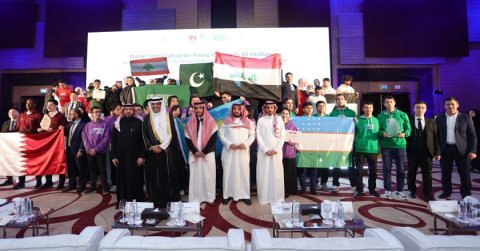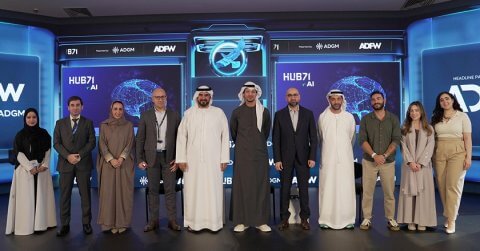
Digital transformation is sweeping across industries worldwide and is gaining momentum at an unprecedented pace across the Middle East and North Africa (MENA) region. However, as technological development continues to improve in capability, it is essential that the skill and expertise of talent can keep pace with ever-evolving demand. The issue is not just an area of concern for businesses that are already struggling to find qualified employees but threatens to exacerbate societal inequalities and limit economic opportunities.
In response, governments across the region, including Saudi Arabia, the UAE, Qatar, and others, have articulated ambitious national strategies such as Vision 2030, UAE Centennial 2071, and Qatar Vision 2030 where Information and Communication Technology (ICT) plays a central role.
The realization of these strategies hinges on one crucial element: a skilled and robust ICT talent pool. This is an issue that will only become more prominent in the region as IT spending is forecast to reach US$230.7 billion in 2025, up by 7.4% from 2024, according to Gartner. As a result, the closing of the digital gap will have a positive impact boosting immediate financial returns while ensuring high investment into technology can be fully exploited and ensure social cohesion through a better-educated workforce.
But national governments cannot do this alone and this is where the private sector can play a leading role. By acting as a bridge that connects academic institutions, government bodies, and private sector entities, public-private partnerships (PPPs) can establish dynamic and industry-aligned educational ecosystems that cater to business and social needs.
Bridging talent gap
Huawei, a global ICT leader, is playing a pivotal role in bridging this talent gap. The company recently concluded its 2024-2025 Middle East and Central Asia (ME&CA) ICT Competition Regional Finals in Riyadh, Saudi Arabia and celebrated the 10th anniversary of the Huawei ICT Academy in the region. The three-day event, held in partnership with UNESCO IITE and supported by the Saudi Arabian MCIT, KSU, and TVTC, saw unprecedented success, receiving over 31,000 student registrations from 640 regional universities and colleges in 19 countries. The response to the competition reflects the growing enthusiasm for ICT careers among the region’s youth.
At the event, Huawei was joined by their government and education partners to commemorate past accomplishments and unveil future plans. The Huawei ICT Competition showcased the region’s upcoming ICT talent with students from Jordan, Lebanon and Qatar emerging victorious across various competitions.
The 10th-anniversary celebrations provided a platform for Huawei to demonstrate the impact of the Huawei ICT Academy. Since its inception over a decade ago, more than 300,000 students have been trained, 35,000 talents have been certified and a network of over 2,000 qualified instructors has been built.
In line with Huawei’s commitment to support the region’s future talent, the company also unveiled “T.H.E. GOLD Talent” program, an enhanced program to address the specific demands of the AI era by offering advanced AI courses and leveraging cutting-edge technologies like 5G-A, cloud computing, and AI-based ICT education. This focus on emerging technologies will ensure that future graduates are well-prepared for the challenges and opportunities of the evolving digital landscape.
Reflecting on the work and impact of the ICT Academy, Steven Yi, President of Huawei Middle East & Central Asia, said: “We created the academy to foster a greater understanding of technology and the huge potential it has to transform the lives of individuals and nations for the better. The impact it has had has far exceeded our expectations and we are proud of the many young people who have been upskilled and are now playing a critical role in helping to make a positive contribution to their nations. As technological development continues to improve it is more important than ever to have talented people in place ready and able to take advantage of its huge potential. At Huawei, we have had a long-standing commitment to supporting countries in this regard and will continue to do so in the future.”
The success of the Huawei ICT Academy and the ICT Competition exemplifies the transformative power of PPPs in advancing digital skills development. Such initiatives will be essential in creating a future-ready workforce equipped with the skills needed to navigate the developments of the digital world.





